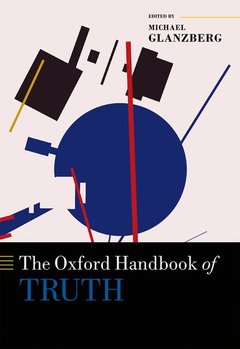Description
The Oxford Handbook of Truth
Oxford Handbooks Series
Coordinator: Glanzberg Michael
Language: English
Publication date: 07-2018
822 p. · 17.1x24.6 cm · Hardback
822 p. · 17.1x24.6 cm · Hardback
Description
/li>Biography
/li>
Truth is one of the central concepts in philosophy, and has been a perennial subject of study. Michael Glanzberg has brought together 36 leading experts from around the world to produce the definitive guide to philosophical issues to do with truth. They consider how the concept of truth has been understood from antiquity to the present day, surveying major debates about truth during the emergence of analytic philosophy. They offer critical assessments of the standard theories of truth, including the coherence, correspondence, identity, and pragmatist theories. They explore the role of truth in metaphysics, with lively discussion of truthmakers, proposition, determinacy, objectivity, deflationism, fictionalism, relativism, and pluralism. Finally the handbook explores broader applications of truth in philosophy, including ethics, science, and mathematics, and reviews formal work on truth and its application to semantic paradox. This Oxford Handbook will be an invaluable resource across all areas of philosophy.
Michael Glanzberg (Ph.D. Harvard, 1997) taught at MIT, the University of Toronto, and the University of California, Davis before joining Northwestern University. He works in the areas of philosophy of language, logic, and metaphysics. In philosophy of language, his recent work has focused on the nature of linguistic meaning, including such topic as the nature of quantification, how lexical items encode concepts, and relativism about linguistic content. He has also explored issues related to the interface between semantics, pragmatics, and syntax, and the role of mathematical techniques in the empirical study of language. In philosophical logic and in metaphysics, he has worked extensively on issues related to truth and paradox, and the status of unrestricted quantification.
© 2024 LAVOISIER S.A.S.
These books may interest you

Axiomatic Theories of Truth 48.38 €



